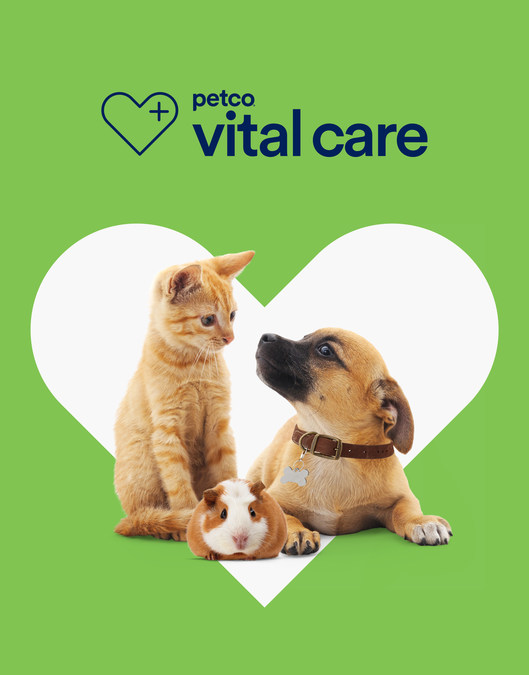Common Health Issues in Pets and How to stop Them Properly
Recognizing Your Pets' Nutritional Requirements for Optimal Wellness

Relevance of Well Balanced Diet Regimens
Ensuring a well balanced diet regimen for pets is important for their total wellness and health. A correct diet regimen not only sustains life but additionally improves the high quality of life by supplying important nutrients that sustain different physical features. Pets, like people, call for a mix of proteins, carbs, minerals, fats, and vitamins to preserve optimal health and wellness. Each nutrient plays a distinctive role; proteins are crucial for tissue repair service and growth, fats provide energy and support cell function, while carbohydrates function as a key energy source.
Including a range of nutrients guarantees that pet dogs keep a durable body immune system, healthy and balanced skin, and a glossy layer. Furthermore, a well balanced diet plan can avoid a host of health issues such as excessive weight, which is linked to diabetics issues and joint problems, or poor nutrition, which can bring about developmental delays and organ dysfunction.
Pet owners should bear in mind part sizes and caloric intake, as overfeeding or underfeeding can have major repercussions. Consulting with veterinarians or pet dog nutritionists can assist tailor diet plans to fulfill details needs, ensuring that animals obtain the appropriate balance of nutrients required for their dimension, age, and activity degree. A consistent and well balanced diet is indispensable for a pet's longevity and joy.
Species-Specific Nutritional Demands
Exactly how do different species of family pets have varying nutritional requirements? This question highlights the necessity for a customized approach to feeding our pet friends. Each species has one-of-a-kind metabolic pathways, digestive systems, and nutritional demands that need to be met for ideal wellness. For instance, dogs are omnivores, calling for a well balanced diet plan of fats, proteins, and carbs, while cats, as obligate predators, require a greater healthy protein consumption derived mainly from animal resources.
Birds, depending upon their species, might need a diet regimen rich in insects, fruits, or seeds, emphasizing the variety within the bird globe. Pets. Reptiles, such as snakes and turtles, likewise demand species-specific diet regimens, with some needing high levels of calcium and others, a well-calibrated balance of pests and plant matter
Recognizing the nutritional differences amongst different species is critical for pet owners. By catering and recognizing to these differences, we make sure the provision of proper nutrition, supporting the total wellness and vitality of our pet dogs.
Age and Size Factors To Consider
While species-specific dietary needs lay the foundation for a pet dog's age, dimension and diet further improve these needs. Young animals, such as pups and kittens, need diet regimens abundant in calories, healthy proteins, and necessary nutrients to sustain fast growth and advancement. These young creatures have greater metabolic rates and require even more frequent feedings to sustain their power levels and guarantee proper growth of organs, bones, and muscular tissues.
Formulas created for grown-up pet dogs frequently concentrate on maintaining weight, promoting gastrointestinal health, and sustaining an energetic way of life. Conversely, elderly pets might benefit from specialized diet regimens that address age-related difficulties, such as joint health, cognitive feature, and body organ assistance.

Health And Wellness Conditions and Dietary Adjustments
Particular health conditions can considerably influence the dietary needs of animals, demanding tailored nutritional modifications to support their health. For circumstances, pets with diabetes mellitus might take advantage of diet plans that are high in fiber and reduced in straightforward carbohydrates to aid control blood sugar degrees. Similarly, overweight animals often require reduced-calorie diet plans to promote weight management and avoid associated wellness difficulties.
Pets with kidney disease might need diets low in phosphorus and healthy protein to relieve kidney work. Omega-3 fats, known for their anti-inflammatory properties, can be valuable for family pets experiencing from conditions like arthritis or inflammatory digestive tract illness. Additionally, animals with food allergic reactions or intolerances may need hypoallergenic diet plans, commonly requiring a procedure of elimination to determine and leave out offending active ingredients.
Veterinary guidance is important when making nutritional adjustments, as inaccurate nutrition can exacerbate existing health issue or bring about new ones. Normal tracking and changes based on the click here to find out more pet's action to nutritional adjustments are necessary. A balanced strategy, taking into consideration both dietary and medical needs, makes sure that dietary treatments add favorably to taking care of health conditions, improving not only the family pet's health however also their high quality of life.
Tips for Deciding On Top Quality Pet Food
Choosing the best pet dog food is critical for guaranteeing your animal's health and wellness and longevity. A well balanced diet plan sustains their immune system, maintains healthy and balanced weight and promotes overall vigor. Begin by consulting your veterinarian to understand your family pet's particular nutritional requirements based upon wellness, breed, and age status.
When evaluating pet dog food, inspect the active ingredient list. Premium animal foods often note real meat, fowl, or fish as the main active ingredient.
This shows the food meets well-known dietary criteria. Brands with a history of recalls or poor quality control should be come close to with caution.
Take into consideration whether your animal would take advantage of special formulations such as grain-free, high-protein, or limited-ingredient diet regimens. These can be valuable for animals with allergies or certain health problems. Observe your animal's action to the food. Screen their coat problem, power degrees, and digestion to make certain the diet regimen works.
Verdict
A detailed understanding of family pets' dietary requirements is crucial for advertising their optimal wellbeing. By sticking to these concepts, pet dog proprietors can dramatically contribute to their animals' development, energy degrees, and general health and wellness, promoting a happier and healthier life.

Selecting the best pet food is important for ensuring your family pet's health and wellness and long life. By sticking to these concepts, family pet proprietors can website link considerably contribute to their pets' growth, energy degrees, and overall wellness, cultivating a better and healthier life.